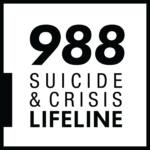Depression
Depression is a common medical illness that negatively affects how you feel, the way you think and how you act. It can lead to a variety of emotional and physical problems and can decrease your ability to function at work and at home. People with depression may have trouble enjoying life, finding motivation, and connecting with others. They may also experience physical symptoms such as fatigue, changes in appetite or sleep, and aches and pains.
Depression can range from mild to severe, and it can be a short-term or long-term condition. While there is no one-size-fits-all cure for depression, there are a number of effective treatments available, including medication, therapy, and lifestyle changes.
The signs and symptoms of depression can vary from person to person, and they may differ in intensity and duration. Some of the most common symptoms of depression include:
- Feeling sad or depressed
- Loss of interest or pleasure in activities once enjoyed
- Changes in appetite or weight
- Trouble sleeping or sleeping too much
- Loss of energy or increased fatigue
- Difficulty thinking, concentrating, making decisions
- Restlessness or feeling slowed down
- Feelings of worthlessness or guilt
- Thoughts of death or suicide
The exact cause of depression is not fully understood, but it is thought to be caused by a combination of genetic, biological, environmental, and psychological factors.
- Genetics: Depression can run in families, suggesting that there may be a genetic component to the disorder
- Brain chemistry: Depression is thought to be associated with changes in certain brain chemicals, such as serotonin and norepinephrine
- Life events: Stressful life events, such as the death of a loved one, job loss, or financial problems, can trigger depression in people who are already at risk
- Medical conditions: Some medical conditions, such as thyroid problems, chronic pain, and cancer, can also increase the risk of depression
- Substance use: Alcohol and drug use can cause or worsen depression
If you are struggling with depression, it is important to seek help from a qualified mental health professional. With the right treatment, most people with depression can recover and live full and productive lives. Know that depression is not a sign of weakness or a character flaw. It is a medical condition that requires treatment. There is no shame in asking for help. If you are struggling with depression, please reach out to a trusted friend, family member, or mental health professional.
At Smarter Therapy, we offer research-backed psychotherapies (i.e. talk therapy) to improve depression/sadness that help most people, most of the time. Interventions offered include Cognitive Behavior Therapy (CBT), Acceptance and Commitment Therapy (ACT), and the Unified Protocol for Transdiagnostic Treatment of Emotional Disorders (UP). These therapies help you find missing meaning in life, get more active, and change problematic patterns that trigger and maintain sad moods. There is hope to feel happy again. We look forward to helping you start living to your fullest potential from the comfort and convenience of your own home!

